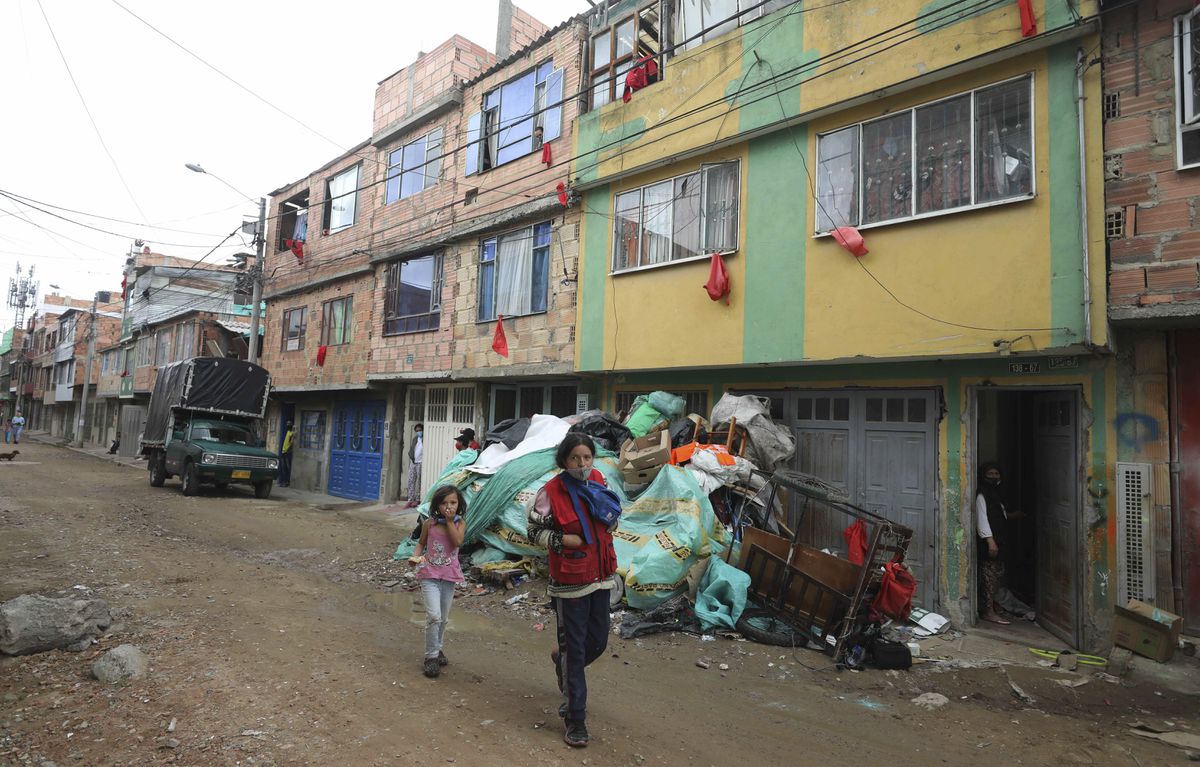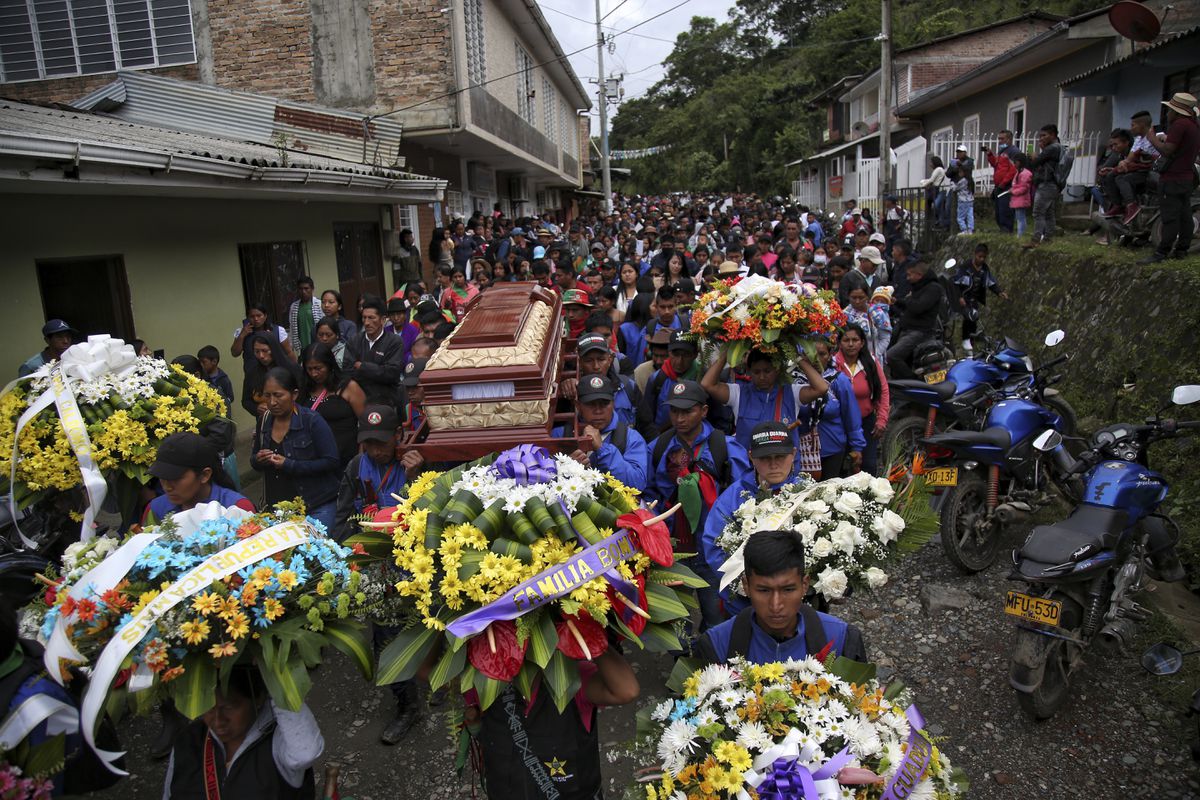Enlarge image
Palestinians wait among the rubble of a building that was destroyed by an Israeli air strike
Photo: Fatima Shbair / Getty Images
A clean war - for Iain Overton this is an illusion. "Today, states can use deadly force without endangering themselves. In the case of drone attacks, for example, the pilot is thousands of kilometers away," says the executive director of the London-based non-governmental organization Action on Armed Violence. Even weapons, which are considered relatively accurate, killed not only soldiers but also civilians. If explosive weapons, such as bombs, rockets, mines, were used in cities, an average of around nine out of ten victims were civilians. "Our data shows that the precision weapon mantra is wrong," says Overton.
With the Explosive Violence Monitoring Project (EVMP), Action on Armed Violence aims to make victims visible around the world. For ten years, analysts have been evaluating media reports on incidents. The recently published study "A Decade of Explosive Violence Harm" reveals the extent of violence in the past decade: More than 262,000 victims of explosive weapons were civilians, almost two thirds of all dead and injured - an average of 25 civilians were killed per day, 46 injured every day . The actual number of victims is likely to be even higher, as hardly any news gets out from dangerous or remote conflict regions.
Civilians are "most at risk when explosive weapons are used in populated areas," says the study - "a well-known pattern of damage."
Busy places like markets, mosques, business and residential areas are turning into a deadly trap for citizens.
The increase in air strikes is particularly noticeable, says Overton.
"The most disturbing trend, however, is that a decade ago we complained about the use of explosive weapons in Iraq and today we must denounce their use in Gaza and Israel - it looks like some have not learned their lesson."
In the conflict between Israel and Hamas in Gaza that broke out on May 10, thousands of rockets flew in the direction of Israel, and the Israeli army bombed the Gaza Strip.
Sometimes when military targets are destroyed, citizens who happen to be in the vicinity die.
In some cases, warring parties directly attack civilian facilities such as schools or hospitals located in areas controlled by opponents.
The employees of the non-governmental organization Mnemonic sift through clues and recordings from social networks for such illegal attacks in countries like Syria, Sudan and Yemen - the digital forensic scientists recently published the database "Targeting Health", which lists air strikes on Syrian hospitals.
Accordingly, the Syrian regime and its Russian supporters are systematically bombing hospitals and other medical facilities; more than 400 such attacks have been documented since the outbreak of the civil war in 2011.
Syria is the country where most civilians worldwide - 77,534 people - have been injured or killed by explosive weapons over the past decade, according to Action on Armed Violence.
Air strikes by state actors such as Syria, Russia and the US-led coalition caused the greatest damage - around 45 percent of civilian deaths and injuries can be attributed to them.
Cluster munitions, which release many small explosive devices, are also frequently dropped in Syria.
They do not differentiate between warring parties and civilians - and duds that do not explode immediately are still sharp after decades and can maim or kill people.
Mnemonic tries to prove the use of this ammunition to the conflicting parties, and artificial intelligence should also help.
"The Russian and Syrian governments have so far denied that they are using cluster munitions against civilians in Syria - but they are the only ones in the conflict who have this type of weapon and can use it there," says Hadi al-Khatib, the founder of Mnemonic.
A database on cluster munitions is to be published at the end of the year, and the initiative plans to bring cases to court together with lawyers.
A criminal complaint against the Assad regime and evidence of poison gas attacks in Syria are currently with the German Attorney General.
In order to better protect civilians, political will is required to outlaw the use of explosive weapons worldwide.
More than 100 states, several multilateral organizations, UN secretaries-general and other high-ranking UN officials have already issued statements expressing their concerns about the humanitarian consequences of explosive weapons.
The International Network on Explosive Weapons (INEW) is trying to get states to sign a declaration in which they undertake to give more consideration to possible civilian casualties in military strategies - as well as long-term consequences of attacks such as the destruction of infrastructure or nature, however also the psychological impact on the population.
"The prospect of another ten years of civil damage from bombing in cities is unacceptable," says Laura Boillot, the network's coordinator. "The use of long-range missiles and heavy artillery is completely inappropriate in inhabited areas and must stop." The international political declaration offers an opportunity to set new standards in the future, such as bans and restrictions. Ireland is driving the project forward, the draft declaration is currently being negotiated.
The past has shown that civil society organizations can build up pressure and initiate changes.
The 1997 Ottawa Treaty prohibits the manufacture, storage, use and transfer of anti-personnel mines, and around 160 states have signed up to the agreement.
Millions of stored landmines have been destroyed worldwide and legal trade has been restricted.
In addition, more than a hundred governments have signed the Cluster Munitions Convention, which came into force in 2010, and committed themselves not to manufacture, pass on or store any more cluster bombs.
This contribution is part of the Global Society project
Expand areaWhat is the Global Society project?
Reporters from
Asia, Africa, Latin America and Europe
report under the title “Global Society”
- on injustices in a globalized world, socio-political challenges and sustainable development.
The reports, analyzes, photo series, videos and podcasts appear in the international section of SPIEGEL.
The project is long-term and will be supported for three years by the Bill & Melinda Gates Foundation (BMGF).
A detailed FAQ with questions and answers about the project can be found here.
AreaWhat does the funding look like in concrete terms?
The Bill & Melinda Gates Foundation (BMGF) is supporting the project for three years with a total of around 2.3 million euros.
Are the journalistic content independent of the foundation?
Yes.
The editorial content is created without the influence of the Gates Foundation.
Do other media have similar projects?
Yes.
Big European media like "The Guardian" and "El País" have set up similar sections on their news sites with "Global Development" and "Planeta Futuro" with the support of the Gates Foundation.
Have there already been similar projects at SPIEGEL?
In the past few years, SPIEGEL has already implemented two projects with the European Journalism Center (EJC) and the support of the Bill & Melinda Gates Foundation: the “Expedition ÜberMorgen” on global sustainability goals and the journalistic refugee project “The New Arrivals” within the framework several award-winning multimedia reports on the topics of migration and flight have been produced.
Where can I find all publications on global society?
The pieces can be found at SPIEGEL on the topic Global Society.




/cloudfront-eu-central-1.images.arcpublishing.com/prisa/KEJKPQHVMJAPJONPEDK42JL56U.jpg)




/cloudfront-eu-central-1.images.arcpublishing.com/prisa/BHMIM33BAZG3JNVIR7C6PCWNNY.jpg)